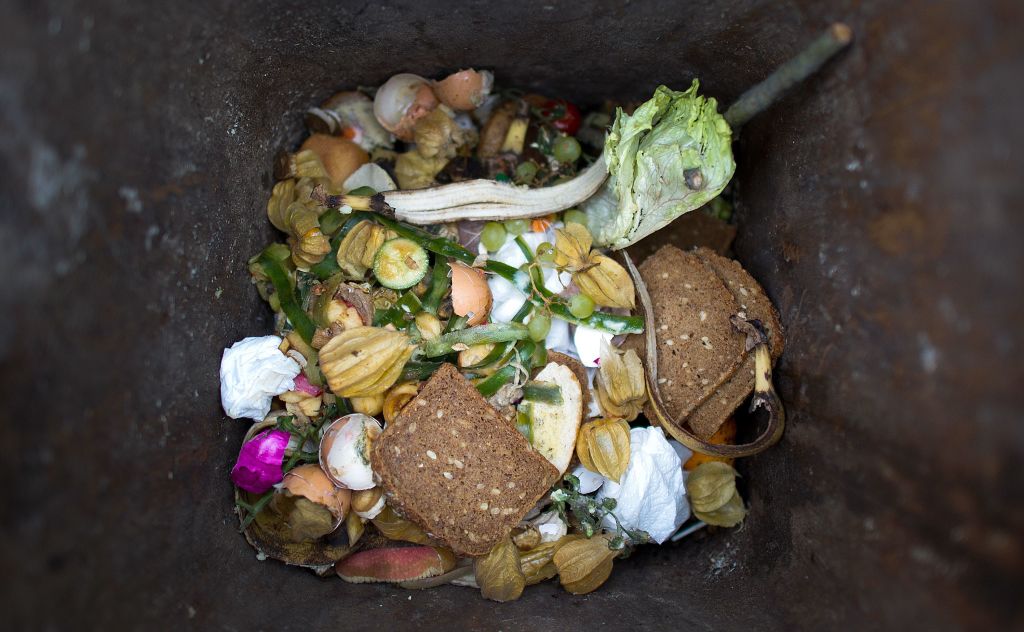If the recent remonstrations around climate change have been anything to go by, you’d be forgiven for thinking that the government has been dragging its feet on the environment for some time. Doubtlessly, one could quibble about whether more could be done in less time, but – sorry protestors – the idea that nothing is happening simply isn’t true.
Last year, climate change minister Claire Perry asked independent experts to scope out a net zero target for greenhouse gas emissions (which it recently completed, recommending we do so). Environment secretary Michael Gove has been ceaseless in his drive to restore our natural world to its verdant best. Alongside a host of other things, he’s even installed me as the government’s ‘Food Surplus and Waste Champion’ to try and clamp down on Britain’s monumental problem of perfectly good food being squandered each and every day.
If you’re scratching your head wondering why food has anything to do with climate change, don’t worry – you’re not alone. Recent figures from a food waste charity revealed less than one in three of us know that it does.
Sadly, this blissful ignorance is now too big an issue to ignore. When food is thrown away, it breaks down and releases methane, a greenhouse gas with considerably more global warming potential that its more infamous cousin, carbon dioxide. Altogether, if the emissions from food waste across the year were totted up as an individual ‘country’, it’d be the third biggest emitter of greenhouse gases after only the US and China. It goes without saying that the agriculture involved in growing all our food also harms the environment in other ways, such as through the use of pesticides and by contributing to habitat loss. This is therefore an issue affecting each and every one of us, so it’s only right that public solutions are required.
As with any problem for government, there are a range of differing opinions about how best to tackle it. Some are calling for big fines for those who waste food, or strict rules and regulations on how businesses handle such waste.
I’m a firm believer in the power of individuals to enact meaningful change. This means we all need to start taking more personal responsibility – whether it’s around how we shop or what we do with our food when we get it home.
Since accepting this role, my family and I now plan exactly what we need to buy when we’re in the supermarket, which has made a big difference in preventing gluts of nearly-expired food building up in our fridge. And if something is past its best, we’ve started thinking hard about how to creatively turn even the strangest combination of ingredients into a perfectly palatable treat (something my youngest loves doing).
Yet I don’t think this absolves all responsibility for the bigger players in the food industry. While there are a number of pioneering examples, some of our best-known manufacturers, retailers, and restaurant groups have been free-riding for too long. If they don’t shape up soon, the public could soon be clamouring for more forceful action. I’m loathe to reach for overly burdensome measures as a first port of call, so the onus is on them to act first.
But there are good examples out there already. I’ve met with plenty of CEOs in the sector and have been thoroughly impressed by some of their commitments to tackling food waste. Whether it’s to improve their public image, bolster their bottom lines, or simply out of genuine good will, they are shining examples of what we need more of and I’m keen to put them in the limelight.
Like climate change protestors, I care deeply about our planet. Through my position, I am fortunate enough to try and move the dial on just one thing which is adding to global warming. While I may not be gluing myself to a train any time soon, I will be taking action of a sort.
On Monday 13th May, I’ll be bringing together hundreds of people – including retailers, manufacturers, policy folk, elected officials, the media and more – as part of a food waste symposium at the Victoria and Albert Museum for a day of meaningful commitment to change. I will be pressing our major food companies to put in writing their ambition to tackle food waste in their businesses and private lives, eradicating it to the best of our ability.
The time for rhetoric is over. Food waste is woefully underestimated among the public. But with a renewed focus I resolutely believe that together we can stamp out this scourge once and for all.
Ben Elliot is the government’s first Food Surplus and Waste Champion






Comments